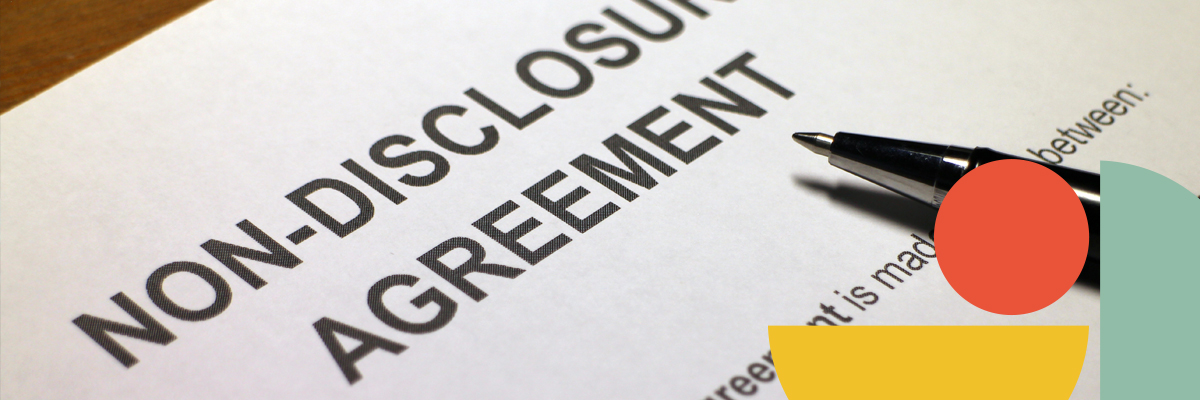NDAs for startups: Why, when, and how
November 2022

When growing your startup, you’ll often need to share sensitive information related to your company. Non-Disclosure Agreements (NDAs) exist to ensure the protection of that data. But many startup owners won’t be sure when an NDA is actually needed, and how they would even go about creating such a document. In today’s blog, we’ll be breaking down all you need to know about NDAs for startups.
NDAs for startups: Why are they needed?
An NDA, often referred to as a confidentiality agreement, is a legally binding document that exists to protect the intellectual property and ideas of your startup.
It doesn’t matter what kind of information you’re protecting. Whether it’s the design for a new product, or your entire strategy, if you want to keep that information confidential then it’s in your best interest to create an NDA. If you decide to forgo the NDA process, you may find it difficult to discuss the information without it falling into the wrong hands, or being misused.
The difference between unilateral and mutual NDAs
There are essentially two kinds of non-disclosure agreements: unilateral and mutual. The difference between these comes down to a one-way agreement versus a two-way agreement, respectively.
If your company is certain that it won’t be receiving sensitive information from the other party, at any point, then a unilateral agreement would suffice. The other party is agreeing that they won’t reveal your confidential information.
A mutual NDA, on the other hand, would be required if both your company and the other party are agreeing not to disclose each other’s confidential information.
NDAs for startups: Who needs to sign them?
Ultimately, the number of people who should be signing your NDA depends on the type of information you’re sharing. But if you know there’s a chance of someone interacting with the information, then they should be signing the agreement.
One of the most common scenarios that would require NDAs is when independent contractors are doing work for your business. This is due to the confidential information that they may or may not come into contact with during the course of their work. Any contract workers or freelancers should sign an NDA at the beginning of your relationship.
Next up is your partners. If you’re outsourcing parts of your process to an outside vendor, or if you’re closely partnered on a shared initiative, an NDA will be required. The same also goes for cofounders, in case they ever wanted to leave and launch a competing business.
Certain employees (or all employees) should also sign NDAs, if they’re interacting with sensitive information. This also goes for prospective employees, particularly if you’re hiring for a high position in your company.
How to create NDAs for startups
It’ll be useful for any startup to have some kind of template NDA that you can quickly tweak and send to different parties. When creating an NDA, there are a number of concepts you should be considering. For example: what’s the scope of this agreement? Your standard NDA will usually consist of two requirements for those signing, those being that they must not disclose the confidential information, and they must not use that information for their own, or (if they’re outside your company) their business’s interests.
You also need to consider how long your NDA is going to last, and whether the signee will negotiate your terms.
Free NDA Template
Engage Data Rooms include free NDA templates that you can modify to meet your needs. This ensures that document viewers must consent to your terms before they can access the sensitive information that you’ve shared.


